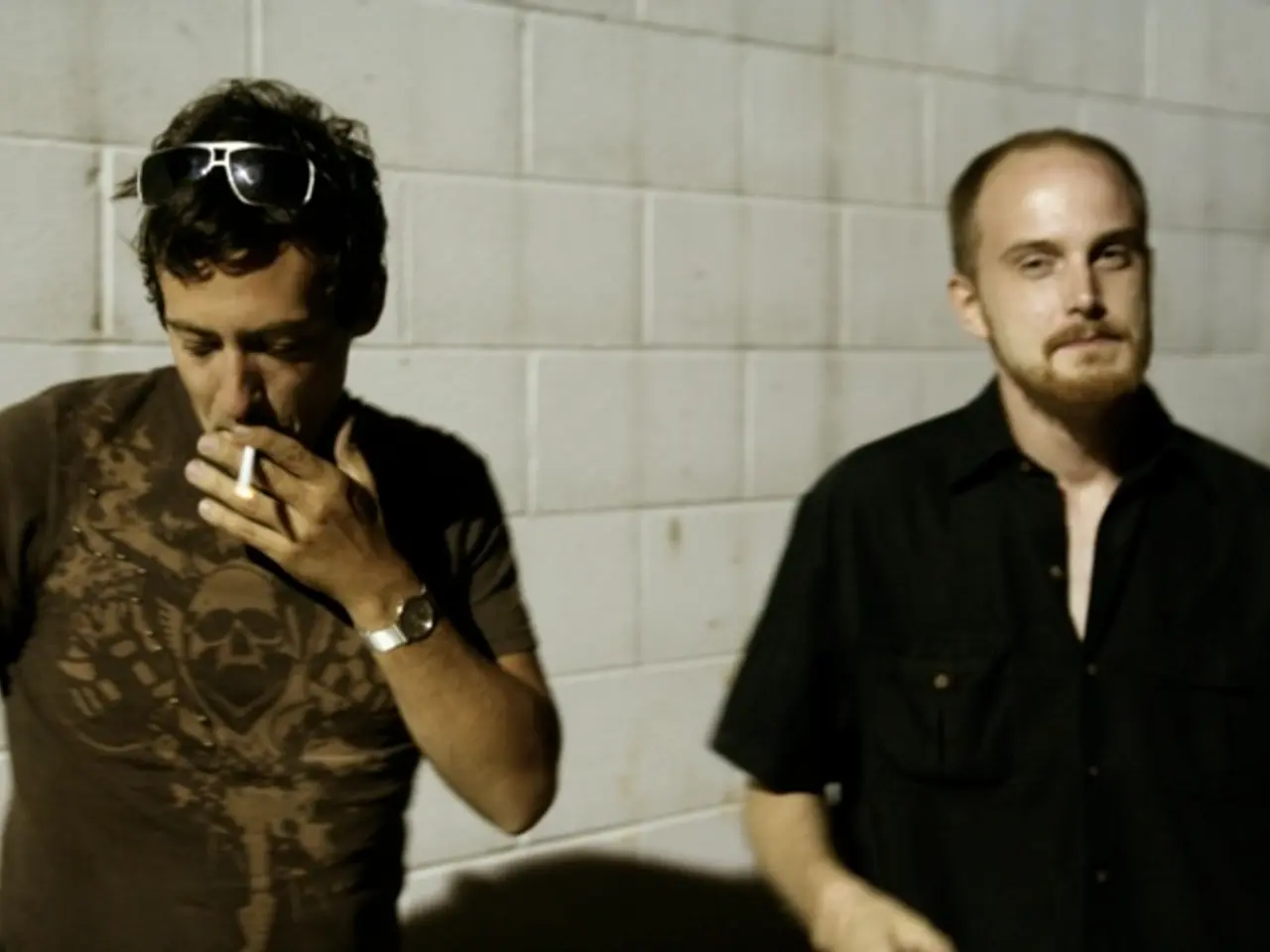Illegal Trade Activities Soaring Upward
In the heart of Europe, a proposed tax hike on tobacco products by the European Commission has sparked a heated debate in Germany. The plan, aimed at increasing the minimum tax rate for cigarettes and rolling tobacco, has raised concerns about potential boosts in the black market and the impact on legal sales.
The current tobacco laws in Germany are complex and offer many loopholes for criminals, a fact that has not gone unnoticed. Critics argue that the proposed tax increase could exacerbate this issue, making it easier for illegal cigarettes to flood the market.
Jan Mücke, from the industry association BVTE, voiced his concern, stating that the plan would be an economic stimulus for criminal networks. He argued that a price increase would lead to a shift towards cheaper, illegal goods, bolstering the black market.
The proposed tax hike could see the price of a pack of branded cigarettes in Germany rise from around 8.50 euros to over 12 euros due to the higher tax. This is a significant increase that industry representatives question whether the state would actually receive more money despite higher taxes, due to potential collapses in legal sales.
Industry representatives for cigar manufacturers in Germany see the Brussels plans as particularly strong headwinds, as the tax on their products would increase by more than tenfold.
The German Cancer Research Center (DKFZ) advocates for an increase in cigarette prices, arguing that they are currently too cheap compared to the EU average. However, the German Customs and Finance Union (BDZ) warns of the increasing illegal trade in cigarettes and e-cigarettes in Germany, calling for a shift from reactive to proactive combat against tobacco smuggling.
BDZ Federal Chairman Thomas Liebel suggests that the customs need modern technology and sufficient personnel to sustainably dismantle criminal networks. Strengthening customs controls and introducing modern technology, he believes, would likely reduce the illegal cigarette market in Germany by improving the detection and seizure of smuggled products, thereby weakening organized crime and strengthening the legal regulated tobacco market.
The Dutch customs have reported a decrease in tax revenue related to cigarettes by about a quarter since 2019, with 10 percent of the cigarettes smoked in the Netherlands being counterfeit. Philip Morris lobbyist Torsten Albig sees similar consequences in the Netherlands and France, where cigarettes have become significantly more expensive due to tax increases.
Criticism of the plan has been voiced at the Intertabac trade fair in Dortmund, with Michael von Foerster from the Association of the German Tobacco Industry (VdR) stating that overtightening the screw destroys the thread.
It is important to note that the German State currently receives around 20 billion euros annually from tobacco sales in Germany. Despite the concerns, the EU Commission's proposal aims to increase the minimum tax rate for cigarettes per 1,000 pieces from 90 to 215 euros, and the minimum tax per kilogram for rolling tobacco from 60 to 215 euros.
The debate continues, with both sides presenting valid arguments. As the proposal moves forward, it remains to be seen how the tobacco industry, the government, and the public will navigate this complex issue.
Read also:
- United States tariffs pose a threat to India, necessitating the recruitment of adept negotiators or strategists, similar to those who had influenced Trump's decisions.
- Weekly happenings in the German Federal Parliament (Bundestag)
- Southwest region's most popular posts, accompanied by an inquiry:
- Discussion between Putin and Trump in Alaska could potentially overshadow Ukraine's concerns





